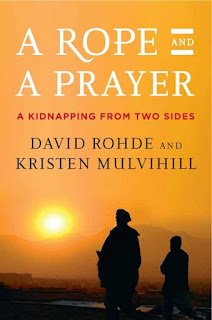By Natsuo Kirino
This murder mystery begins in with a cut throat look at a highly competitive junior high and high school in Japan as a small group of people try to navigate the complicated hierarchy of this microcosm. As they move out of this environment and into adulthood the story explores what it means to be women in Japan, how sexuality plays into social expectations and ultimately about how we construct our sense of self and the role of self delusion in that process. With a changing narrator through some interesting means, the reader is forced to evaluate the story they are hearing through multiple voices and struggle with credibility and whose story to trust.
As this mystery unfolds the story surfaces issues around beauty, growing older (in particular for women), jealousy, long term self deception and freedom.
"With my monstrous beauty and my monstrous desire, I suppose I'll now become a full-fledged beast. My ghastliness has increased along with my age. I've written it any number of times already, but I do not feel lonely. This is the true figure of the woman who was once a beautiful girl. I daresay my sister must take great delight in my decline. That's why she calls me all the time." Pg 126
"No, what I believe is that there is something implicit in everyone, which forms that person's character and is responsible for everything else. There was something inside Kazue herself that was accountable for the change in her appearance. I am sure of that." Page 181
"And Kazue would never accept the fact that a woman with equal ability would always be more successful if she was beautiful. . . . In contrast to Mitsuru and me - who knew to polish our natural gifts in order to survive - Kazue was overly ignorant of her own self. A woman who does not know herself has no choice other than to live with other people's evaluations. But no one can adapt perfectly to public opinion. And herein lies the source of their destruction." Page 211
"Is this not the intensification of individuation - this heightened sense of awareness of self - a result of the suffocating burden of being trapped within the same social community? It is from the pain this produces that we find changes occurring in our makeup and structure. Without a doubt the experiences that unfold are cruel and bitter. Perhaps it is not possible for us to teach about these bitter experiences. More likely it is impossible for us to articulate the findings we extract from our painful experiments in life." Page 310
"You and I are the same. And Kazue too. We all had our hearts wrested away by an illusion. I wonder if we looked like victims of mind control." Page 343
"Kazue's journals were different. Zhang's deposition may have been predictable, but not Kazue's. The dissolute loneliness she depicted was awful. When I finished reading her words, I felt a change come over me - something I'd never felt before. Before I was even aware of it, I started to weep in sympathy. Me! I couldn't hold back the tears as I thought about how completely alone Kazue had been: her outward appearance so grotesque she was like the Incredible Hulk. The reverberations that echoed through Kazue's empty heart made my own heart tremble, paralyzing me so I couldn't speak." Pg 461
Book 8







